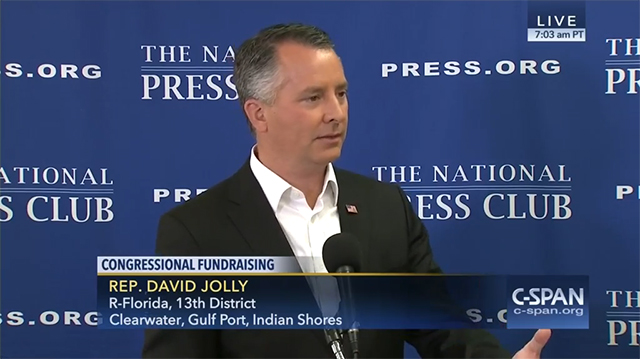Members of Congress are angry, if you listen to Representatives David Jolly (R-FL) and Rick Nolan (D-MN) this morning at the National Press Club.
They’re angry because leadership in both parties have told them it is their first responsibility to raise money, not represent the voters who put them in office. Each lawmaker is just one more body to make sure their party maintains control of Congress.
And that’s just not right.
According to Jolly, this is why he blew the whistle and introduced the Stop Act—to reform Congress from the inside with the unique perspective of just how much time is spent fundraising. It’s also why he’s working with Issue One to garner support for changing the “Washington is broken” culture inside the beltway and build a bipartisan majority in Congress to reduce the influence of money in our politics and government.
“The people I answer to are 700,00 people in Pinellus County, Florida. I get to decide what I’m going to do for those 700,000 people,” said Representative Jolly. “The moment a culture up here says you got elected to be one more marble on our side of the aisle to keep the majority, and to do that you’ve gotta go raise $2 million, that makes members angry.”
According to 60 Minutes, members of congress are directed to spend 20 to 30 hours a week dialing for dollars in cubicles across the street from the Capitol. This is in addition to the recommended 10 hours a week they spend at fundraisers, breakfasts and other events, according to Nolan.
Congress should be governing and tackling tough issues like taxes, immigration and our broken campaign finance system that allows politically-influential businesses, unions and individuals to drown out everyday Americans’.
The Stop Act is a brave first step, and we hope more of our elected officials follow its example and listen to voters who are making the issue of the influence of money in Washington their top priority.



